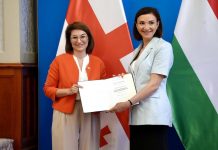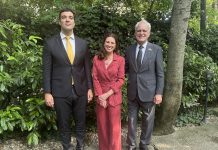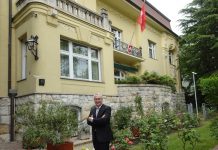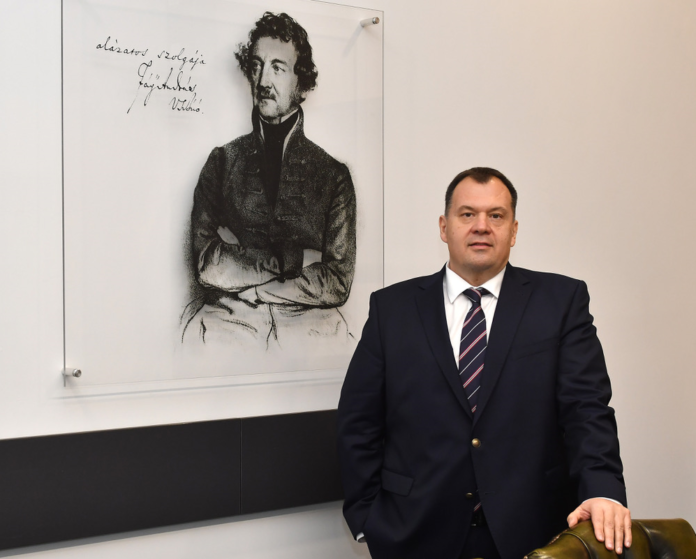Written by: Anna Popper and published in the Diplomatic Magazine
“We want to raise happy and successful people, not rich ones”
What was Your motivation when You accepted this important position?
– The OTP Fáy András Foundation was established by OTP Bank in 1992 on the initiative of its President, Dr. Sándor Csányi, with several organisations that no longer exist. The vision was for a commercial bank to be able to give back to the society from what it benefits, in the new economic environment after the regime change.
Ten years later the sponsoring Foundation began to develop its unique character, its professional operation. The Founder asked Prof. Szilveszter E. Vizi, President of the Hungarian Academy of Sciences, to be the Chairman of the Board of Trustees, and chose me for the task of creating and implementing professional strategy.
Previously I worked in the management consulting market, yet it was a challenge, as I had never dealt with education in such a complex way. This was a new world for me, even though my scientific subject was the renewal of organisations.
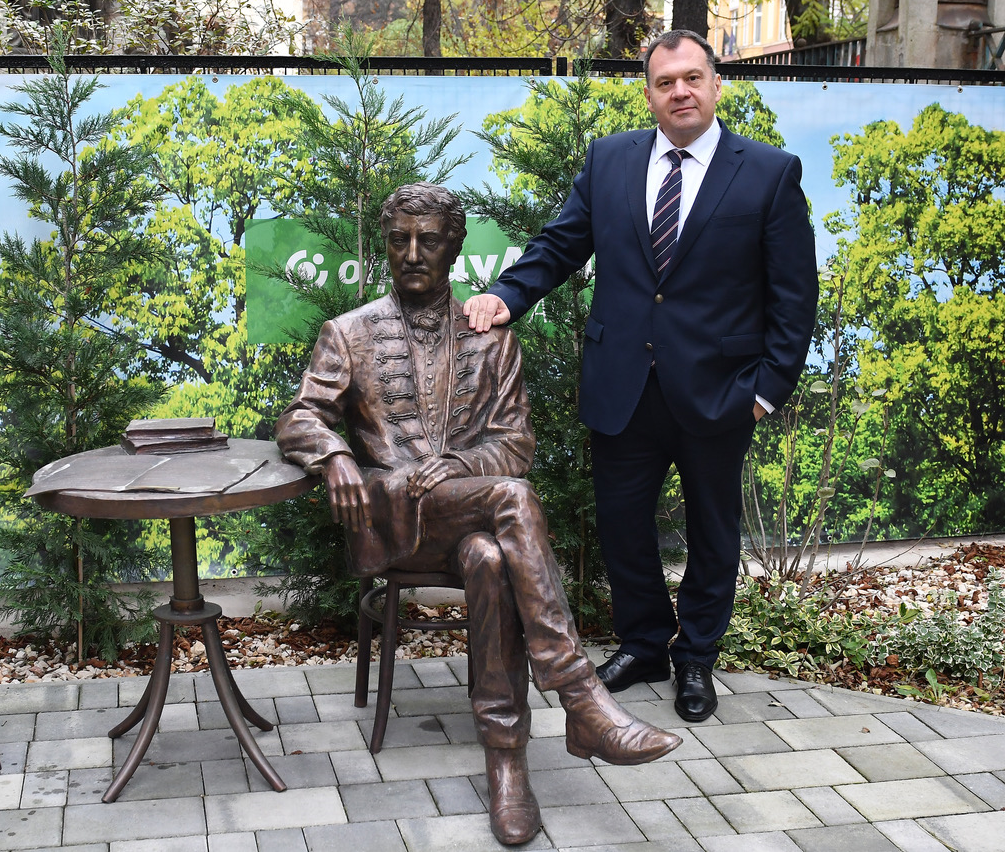
What was Your professional career like?
– For a long time I didn’t see any path in front of me. After graduating from a school of journalism, I worked as a journalist, a parliamentary correspondent and wrote for prestigious dailies. Then I got a degree as a sociologist and later as a business consultant. Finally, I earned my PhD in organisational psychology, and my academic interest was supplemented with pedagogy and positive psychology.
The business and scientific approaches ran parallel in my head: I made a living through the former (advancement of business, strategic projects and organisations) and did research and development through the latter, which was attractive for my civic self.
What achievements of the Foundation are You most proud of?
– What makes me proud is actually a team work, a joint performance of many excellent people, enabled by professional support.
I have to highlight that I consider the Founder, Dr. Sándor Csányi as my role model and professional mentor despite the fact that we are not in daily contact within the Foundation. I am also grateful to my direct bosses, who entrusted me with the professional planning and implementation process, showing confidence in me, which was crucial.
Overall, I am proud of our significant development: the initial share capital of HUF 10 million has grown to a balance sheet total of HUF 5.5 billion, and we employ about 50 people. We have the solid infrastructure and equipment needed for our functioning. We have opened educational centres in Budapest and Nyíregyháza, and we have launched educational programmes in Slovakia, Romania and Moldova with our associated foundations.
What is the essence of Your teaching method?
– The idea was to be able to effectively train young people aged 7-19 – taking part in public education – in the financial, economic and management fields. Since we usually meet a child only a few times a year, instead of the classical school model, we had to build a more efficient education that maximally involves students. Our methodology applies Mihály Csíkszentmihályi’s flow theory. Flow as an experience is realised in training here. The same approach is true for our education-development and adult education programmes as well.
What I consider a great achievement is that children and young people suggest to each other the kind of learning and knowledge we offer. That’s the best measure of value.
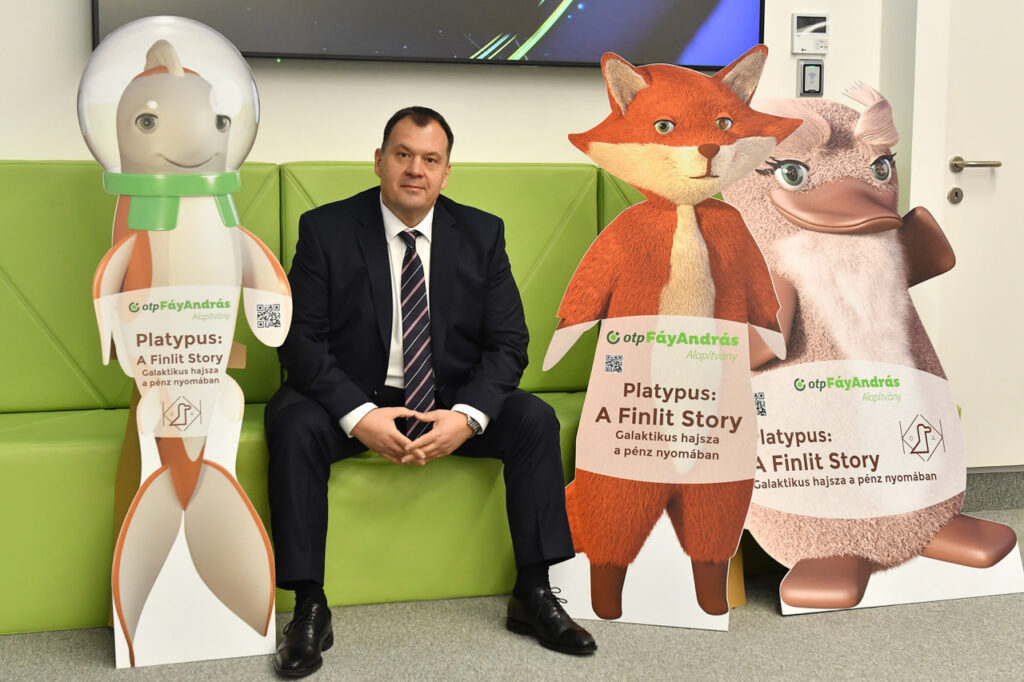
It is a significant recognition that Your teaching method has been certified by a Finnish company.
– We thought that if we hold our ground in methodology and educational innovation internationally, they must be appropriate at home as well. For many years we have taken part in the world’s largest educational exhibition and fair in London, sometimes as an exhibitor, sometimes as a participant. That is where we met our Finnish partner, the education evaluator Education Alliance Finland. Today, the Finnish are the Rolls-Royces of education on a global scale. We had to strive to receive their recognition. It is important to point out that the most substantial difference between our practice and the Finnish approach to education was that they really put equal emphasis on teaching and learning, and thus examine the roles of teacher and student alongside. We used to focus mainly on teaching.
It is also a great success that the OECD INFE (International Network for Financial Education of the Organisation for Economic Co-operation and Development) chose the OTP Fáy András Foundation as its partner organisation in 2019 based on its performance in financial literacy education, so we became expert members.
Do You have any further plans in Your current position?
– Progress will not stop, as the results of the last eight years since the establishment of the Budapest Education and Innovation Centre speak for themselves. This organisational structure and form allows for such quality work. We also participate in many international and domestic tenders; our source-authoring ability is 100%, as we implement to the maximum what we undertake in the tender. We have the trust of our supporters and so we can access serious external resources.
At present, I focus mostly on adult education. We have already launched such programmes, e.g. in Hungarian higher education we are the only ones who operate a financial teacher training programme at ELTE University in the form of a 4-semester postgraduate course. However, we want to make financial education available to all adults. What is more, I treat both financial education and adult education in a complex, broad-spectrum, kind of interdisciplinary way.
Adult financial education is a challenging task, as financial literacy is an important competence in the 21st century. Yet, we should teach people to manage all their resources, not just money: time, health, family love, or the power of cooperation… We also tell our young students that we want to educate happy and successful people, not rich ones.
The increased value of adult education is reflected by a saying of PwC leaders: “The workplace is the school of the future.” Employers and work organisations obviously have a greater training role now than they had years ago. It is a professional challenge and also huge responsibility. As far as my own vision is concerned, it’s a pleasure to take part in the development of organisational structures and quality strategies where education and training play an important role.
This model of education proves to be very suitable, and I wonder why it has no followers in public education. What would You change if You could?
– I’ll dodge the question a bit and start the answer elsewhere. I have yet to meet someone who cannot recall at least one teacher whom they loved, looked up to for their knowledge or humanity. Wherever I go in the world, everyone has at least one such role model. So ‘good teachers’ as ‘resources’ are everywhere. That’s why I don’t agree with the simple generalisation that education is bad. It doesn’t work the proper way, which is a huge difference. There is a vast intellectual capital present in Hungarian pedagogy as well. The question is: what opportunity does the state or the legal environment provide for creative and efficient functioning, personal roles, pulsation?
I think that Hungarian education offers opportunities and prime resources, among them qualified and committed people. Greater emphasis should be placed on talent search, recognition of opportunities, support for projects, thus the education and the world would be better. We have to believe in people, projects and programmes. This is my credo.
How do You choose Your colleagues?
– This is the most difficult question. I usually say that I am looking for employees with the same attitude and knowledge as the popular dentists of small settlements, who must be able to solve all problems and challenges in person, on the spot. We also have multifaceted tasks: we deal with education, educational development and management at the same time. So I expect a complex, holistic vision from my colleagues, at any level.
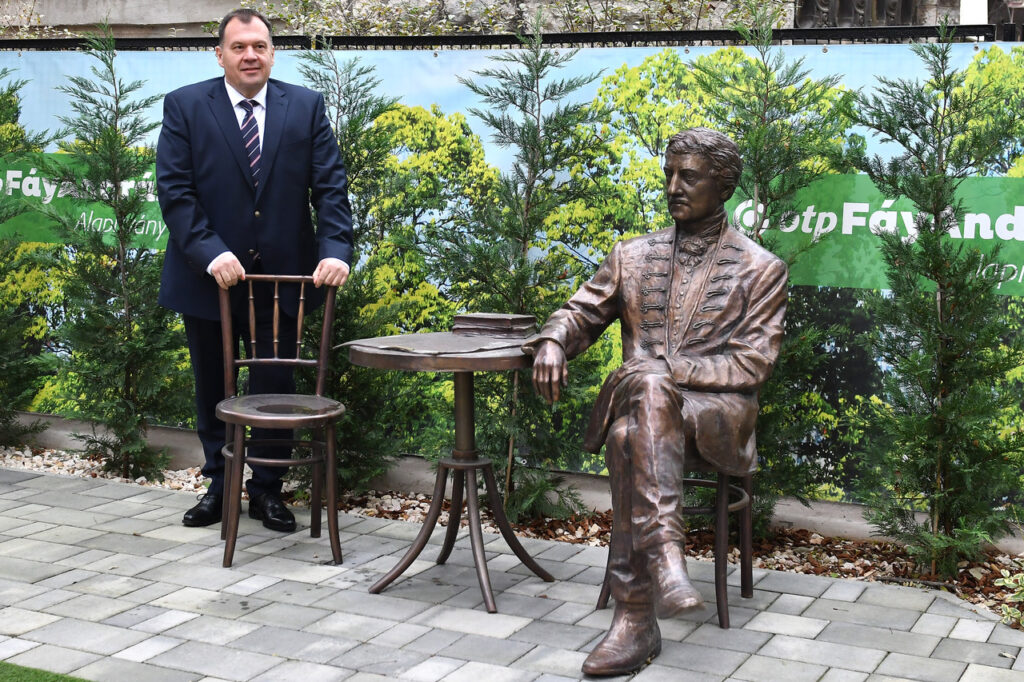
What kind of leader do You consider Yourself?
– Sometimes awful. I usually play two or more pianos simultaneously and that can be a bit too much for my environment. For me, the best leadership model is when democracy prevails until the goal is set and the strategy is developed. I am a 100% partner in this, even if I suspect that finally the solution will be different from what we are talking about because that is how I can support the colleagues. But from the moment we set the tasks and deadlines, I switch to autocratic mode. I only have the realisation in front of my eyes. Yet, I’m not afraid to re-plan something more than once. How am I in general? This should be asked of my colleagues. I try and I learn…
How do You spend Your free time if any?
– I read a lot and travel whenever I can. I have loved sports since I was a child. I really got into kayaking 1.5 years ago, so I’m on water a lot, this is the ultimate relaxation for me. The proximity of water, the hard physical struggle and the feeling of freedom are important.
New Year is approaching, what do You expect from 2021?
– I look forward to 2021 as a year of hope, even though this year was successful for me as well. I enjoyed my work, its professional nature, and my time with colleagues. Yet, the pandemic oppresses everyone and its effects are burdensome. I think a pandemic is a state of war, if not more severe… Surviving this, putting its aftermath in order will be a challenge for all. If humanity is able to think forward, we will probably succeed. And not the pessimists will be right, who are already predicting the next pandemics. I believe in and support those who will soberly lead the country and the world out of this crisis.
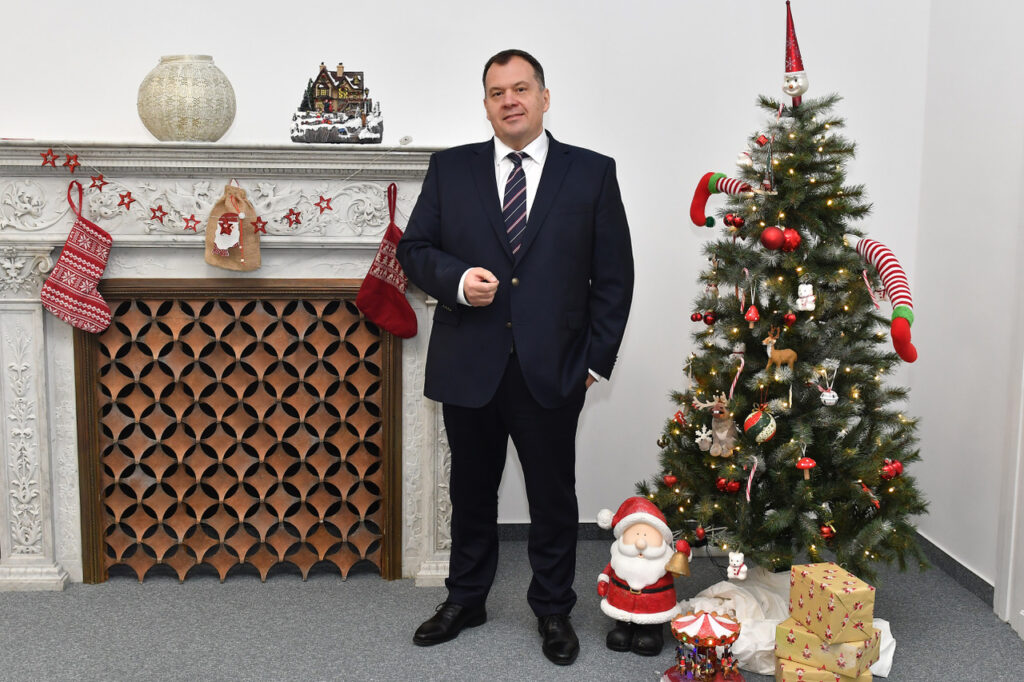
Wishing Merry Christmas and Happy New Year!

